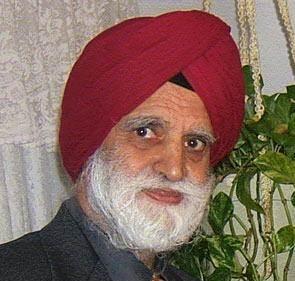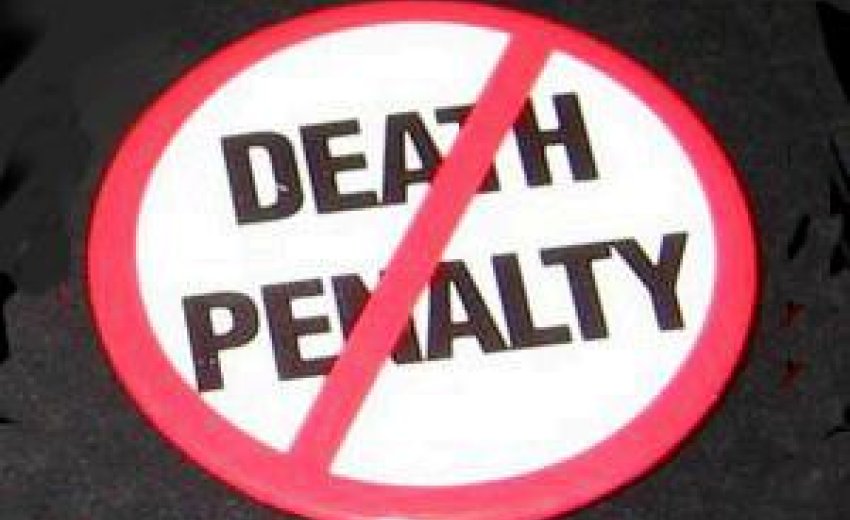To revisit the matter briefly: A former police officer in Punjab, India, Balwant Singh Rajoana has been languishing in jail for the past 17 years.
He was convicted of murder in the death of the chief minister of Punjab, Beant Singh in 1995. As the chief administrator of the state of Punjab, Beant Singh was responsible for the murder of thousands of Sikhs in Punjab. Quite honestly, his assassination would have been unnecessary if he had been held responsible for his acts in those killings. But he wasn’t and the Indian judicial system, known for its serpentine ways that are more often for sale, did nothing for years.
Balwant Singh admitted his guilt, took responsibility in open court and was willing to accept any punishment that the law might give him, including the ultimate penalty of death. When a person breaks a law, be it murder or jaywalking, he must be ready to pay the piper. Balwant was and is ready for it.
Penalty handed down by the Indian courts was death by hanging. But the jail authorities refused to hang Balwant Singh.
Given the history that I briefly summed up and that Balwant Singh is a hero to so many, it is no surprise that the people of Punjab erupted en masse when the government announced the date for the hanging. They shut down the whole state for a day to vent their anger. Sikhs outside Punjab and all over the world held vigils and protest meetings. Some even clearly raised rebellious slogans. The anger was palpable.
The government did what governments do, if they have any sense. The hanging was postponed and a new date has not yet been announced. The hanging is held in abeyance (until tempers cool?) but not canceled.
In most of my writings I deliberately try to avoid the word “Should.” My purpose is not to advise anyone what he or she should do, certainly never a bureaucratic entity like a government. Should or ought to need to be avoided like the plague. Should is too preachy.
But here today I have no choice. Let’s briefly explore what the Indian government can do.
It can’t possibly accept that a mob of people have stayed its hand. That way is loss of face and loss of power both. There is fear of becoming a laughing stock. Without respect a government may as well resign and retire to the wilderness.
So what are the alternatives?
A new date could come or the government could hang him on a quiet day or even in the middle of the night when people’s attention is diverted by some other national issue or crisis.
But there is no guarantee that the people will not once again come out into the streets. Having tasted power once, they will likely exercise it again. What happened now when the government tried to hang the man tells me that the lawless days of 1980’s will return to Punjab once again. Those days brought the country to the brink of fragmentation; their revival will be no different.
Does any government in its right mind want that? I am sure the bureaucrats and policy makers in India are smarter that to try this path again. It was no good in the 1980’s, it might be worse now.
My recommendation: Run away from this.
The next alternative is to let him be, but in jail. Ignore that there was a death sentence on him. Let him rot his life in jail. But the people will remember that when they shut the state down, the government blinked. The power lost will not return, nor will the loss of respect. In my view, not a desirable alternative for any ruling coterie or cabal.
So what do I recommend?
My suggestion would be simpler: The government could quietly and tacitly if not openly support a campaign for the abolition of death penalty in India, with Punjab taking the lead. Look for alliances in other states. Rest your case on the United Nations and its recommendations that advocate a policy of abolition of the death sentence particularly by aware, advanced and humane governments. Distance the recommendations from less sensitive and unsavory allies, domestic and foreign. Emphasize that the application of death penalty in India is already on the decline. And that India has an ages-old moral core. (This last sentence sounds more like sales hype than reality, I know. But it could sell given the modern geopolitical realities, and it may also change India for the better.)
In other words don’t carry out the death penalty and capture the high moral ground. I know India’s propaganda machine has an enviable record in the matter of moral ground. But the exercise that I am recommending might help India onto a better place.
There is no doubt that Balwant Singh had a hand in the killing of Beant Singh. Keep the circumstances and the times in mind and design a jail sentence to fit not only the context of the crime but also both our and India’s long term goals. Yet, remember that justice must be tempered with mercy, or else it is no justice.
I.J. Singh - 2nd April, 2012

